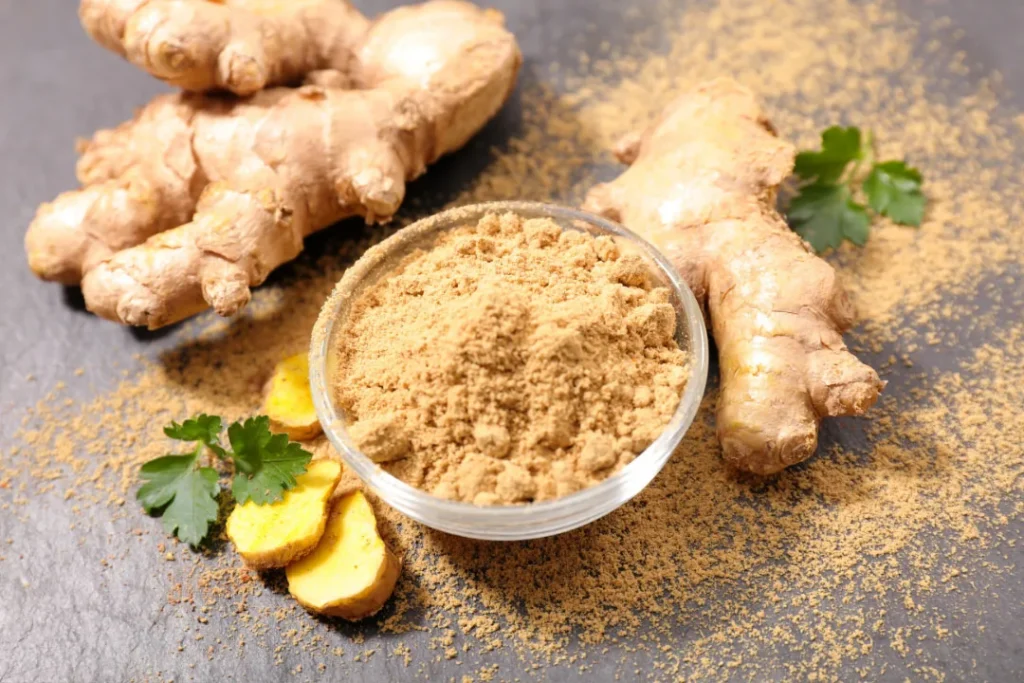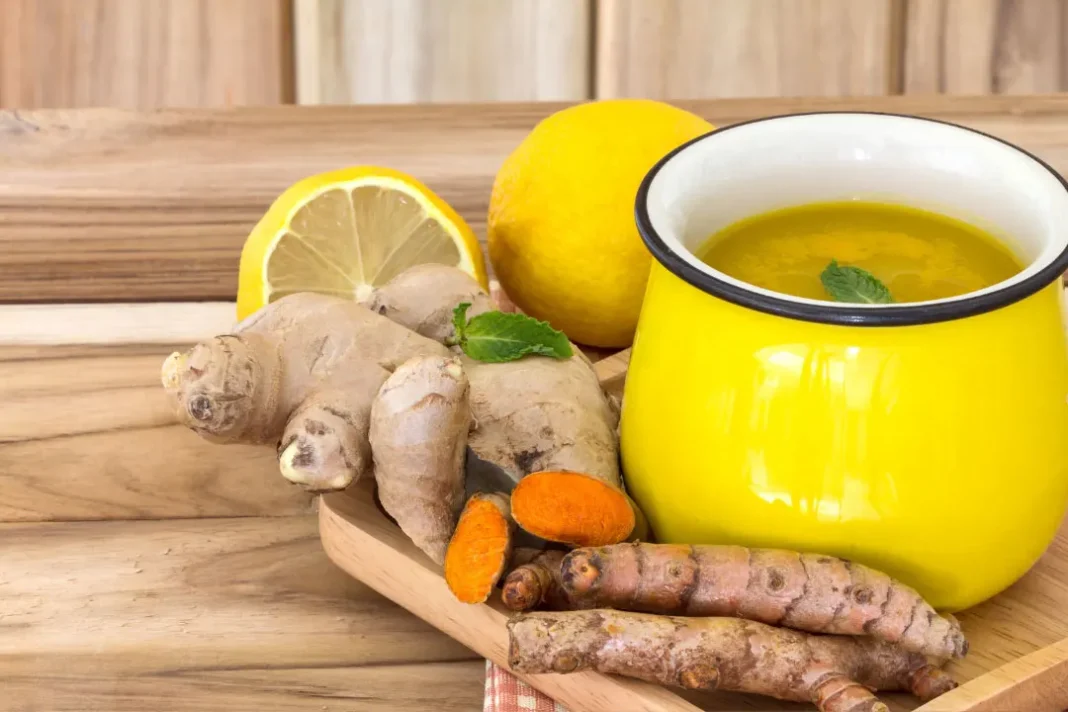How To Reduce Inflammation In 5 Easy Steps
Every day, individuals find themselves to be the subject of injury, disease, or infection. Inflammation is an integral component of our bodies’ immune systems and it works to defend us against infections and injuries. Symptoms of inflammation can include pain, redness, swelling, heat, and sometimes even loss of the ability to function properly, such as with a swollen ankle. Overall, inflammation is a process that helps protect and heal the body. However, some illnesses or factors may contribute to an individual experiencing long-term inflammation.
If inflammation persists for an extended period, however, it could indicate more serious health conditions, including heart disease, arthritis, and diabetes – these have all been linked with chronic or long-term inflammation. There are various treatments and remedies for inflammation; one such remedy involves turmeric as an herbal medicine treatment option. We will explore this in more depth in this article and identify a top anti-inflammatory supplement that contains turmeric.
You May Also Like:
THE PROS AND CONS OF PROTEIN SUPPLEMENTS
COMPARING 2 SUPER SUPPLEMENTS: WHEY VS PEA PROTEIN
How To Reduce Inflammation In 5 Easy Steps is an original (MedNewsPedia) article.
How to reduce inflammation:
An overview
Understanding inflammation and its effects is essential to treat this health problem effectively. When the body is threatened by injury or infection, the body’s inflammatory response is triggered. Inflammation occurs when there is damage to tissue in the body caused by trauma, bacteria, heat, or other factors. When this happens, specific chemicals are released by our bodies that help fight off infections or repair damaged tissues caused by injury. The release of these chemicals into the bloodstream triggers a response within the body that causes swelling as a result. While inflammation is part of a healing process in most instances, prolonged forms can pose more severe health concerns.
There are numerous factors that can lead to chronic inflammation, which is inflammation that persists for months or years. These can include factors like having a poor diet, leading an inactive lifestyle, experiencing continued or extreme stress, and even chemicals found in the environment.
Understanding which factors contribute to your inflammation specifically is the first step in properly addressing the issue(s). Once you have identified the cause of your inflammation, you can discuss treatment options with your doctor. While some individuals may require medical treatments like prescription medications, others may be able to manage their symptoms with lifestyle changes or holistic remedies.

How to reduce inflammation:
Turmeric
Turmeric is a spice that has long been used as part of traditional medicine practices, religious services, and culinary preparation. Known for its vibrant yellow hue, turmeric is said to have a peppery taste, making it a preferred spice for dishes like curry. Though turmeric has been praised for the flavorful addition the spice brings, there are also other beneficial properties of turmeric.
The medicinal benefits of turmeric come from the presence of curcumin that is found in the spice. It is curcumin that gives turmeric its signature yellow color and its anti-inflammatory properties. Some research has suggested that curcumin, when regularly consumed, can provide beneficial support for multiple areas of the body, improving heart health, brain health, and joint health. These benefits come from the ability of curcumin to attach to only specific molecules that are typically signaled by the body’s inflammatory response. Another benefit of curcumin is that it fights free radicals, which can also reduce inflammation in the body.

How to reduce inflammation:
Ways to incorporate turmeric
With the benefits of turmeric being so abundant, it’s no wonder that individuals are flocking to the grocery aisle and health food stores. If you’re thinking about adding turmeric to your diet, there are a few ways to incorporate it into your diet easily.
- Sprinkle it: The easiest way to add turmeric to your diet is to simply take the powdered spice and sprinkle it on your regular meals and beverages. Turmeric can be a flavorful last-minute seasoning for many dishes, including soups, salads, curries, stir-fries, and more.
- Turmeric tea: As with many herbal remedies, turmeric can be steeped in hot water to make an herbal tea. When combined with other powerful herbs, such as ginger or cinnamon, the beneficial properties of the spice are amplified. Adding honey or organic maple syrup can be a way to sweeten the beverage naturally.
- Turmeric scramble: With a peppery taste that is not spicy, turmeric can easily be added to tofu, eggs, or egg whites to create a flavorful and vibrant scramble.
- Turmeric salad dressing: Combine turmeric powder with oil, vinegar, and a few additional herbs to make an incredibly tasty and light salad dressing.
- Roasted veggies: Punch up your boring roasted veggies by tossing them in olive oil, salt, turmeric, and garlic prior to roasting. The peppery spice will enhance the roasted veggies without increasing the heat.
- Golden Milk: A popular recipe that uses turmeric is known as “golden milk”. Combine powdered turmeric with your preference of milk and a dash of black pepper. This beverage is touted for being the inflammation buster beverage.
How to reduce inflammation:
Considerations
It is important to be aware that while turmeric is generally safe for most people to consume, it is still wise to understand any potential interactions and side effects that may occur. Potential drug interactions with turmeric include anticoagulant medications, diabetes medications, and certain cancer treatments. Turmeric may also interact with certain supplements, such as blood thinners and iron supplements, and can cause gastrointestinal issues when taken in large doses. When turmeric is taken in large amounts for a long period of time, stomach upset can also occur. In severe cases, ulcers may also develop.
It is important to note that turmeric supplements cannot replace professional advice when dealing with medical conditions or taking medications. It is always a good idea to consult a physician before adding turmeric supplements to your health regimen.

How to reduce inflammation:
Healthy Truth
If you’re looking for an anti-inflammatory supplement that contains high-quality turmeric, Healthy Truth is one of the most reliable brands on the market. Each serving of Healthy Truth’s GO Gold contains 1600mg of curcumin, the active ingredient found in turmeric, along with other potent anti-inflammatory ingredients like turmeric root powder, blueberry powder, and pomegranate powder. Furthermore, adding black pepper powder enhances curcumin absorption levels by 2,000%, making GO Gold even more effective.
But what truly sets GO Gold apart is its innovative blend of ingredients designed to promote healthy digestion and immunity. Inulin powder serves as a prebiotic fiber that encourages the growth of good bacteria in the gut while lemon juice powder acts as an immunity booster, detoxifying your body in turn. Finally, monk fruit powder is a natural, zero-calorie sweetener that brings sweetness without the need to add refined sugars.
The Healthy Truth GO Gold supplement may be an ideal solution for anyone looking for a supplement that reduces inflammation and promotes overall well-being. The combination of anti-inflammatory ingredients present in GO Gold, along with its digestive and immune-support properties, makes it an invaluable tool for ensuring optimal health.
How to reduce inflammation:
Help your body to help you
Inflammation is the body’s immune response to injury or infection. Despite inflammation being necessary to heal most conditions, chronic inflammation can have adverse effects and has been linked to arthritis, diabetes, and heart disease.
Traditional medicine has used turmeric for centuries to treat inflammation and other conditions. Curcumin, one of the active components in turmeric, has proven its anti-inflammatory abilities by blocking pro-inflammatory enzyme production which causes inflammation. Turmeric can easily be added to your diet in several natural ways. Turmeric also acts as a natural food coloring agent and can have anti-inflammatory benefits when added to smoothies or beverages as part of a nutrition boost.
Supplements are another effective way of reaping the benefits of turmeric and come in various forms, including capsules, tablets, and powders. When selecting one it is essential that it contains standardized curcumin extract, as this is the most active form. Furthermore, please follow all dosage instructions as excessive turmeric consumption can cause adverse gastrointestinal side effects. Turmeric has many other health benefits in addition to anti-inflammatory ones, such as improving cognitive function, decreasing symptoms of depression, and supporting cardiovascular system health. Furthermore, turmeric may protect from free radical damage via its antioxidant properties.
Inflammation is a natural response of our immune systems, but chronic inflammation can have detrimental health consequences. Turmeric is an effective natural way of combating inflammation that can be added to your diet by using spices or supplements. Additionally, studies have demonstrated its wide array of health benefits, showing that turmeric could make an excellent addition to your wellness routine.

For Further Information:
National Institute of Environmental Sciences – Inflammation
National Library of Medicine – Anti-Inflammatory Effects of Curcumin in the Inflammatory Diseases: Status, Limitations and Countermeasures
John Hopkins Medicine – Tumeric Benefits
Harvard Health Publishing – Understanding acute and chronic inflammation
National Library of Medicine – Berries as a Treatment for Obesity-Induced Inflammation: Evidence from Preclinical Trials
Important Note: The information contained in this article is for general informational purposes only, and should not be construed as health or medical advice, nor is it intended to diagnose, prevent, treat, or cure any disease or health condition. Before embarking on any diet, fitness regimen, or program of nutritional supplementation, it is advisable to consult your healthcare professional in order to determine its safety and probable efficacy in terms of your individual state of health.
Regarding Nutritional Supplements Or Other Non-Prescription Health Products: If any nutritional supplements or other non-prescription health products are mentioned in the foregoing article, any claims or statements made about them have not been evaluated by the U.S. Food and Drug Administration, and such nutritional supplements or other health products are not intended to diagnose, treat, cure, or prevent any disease.


